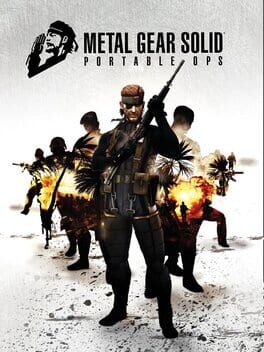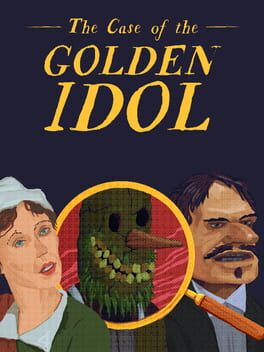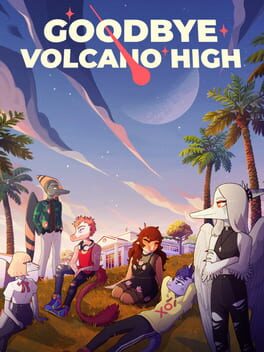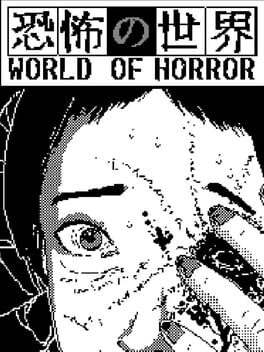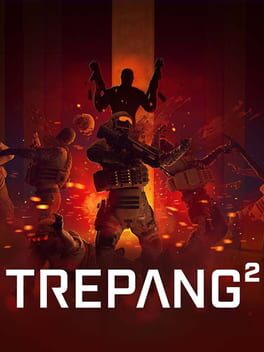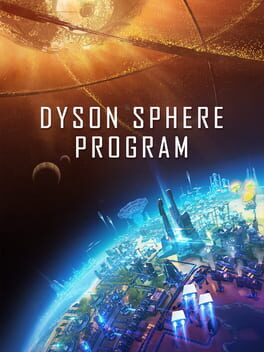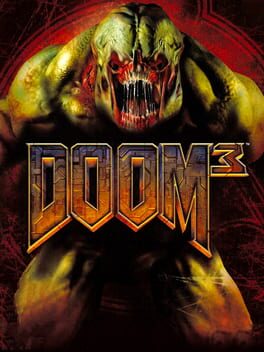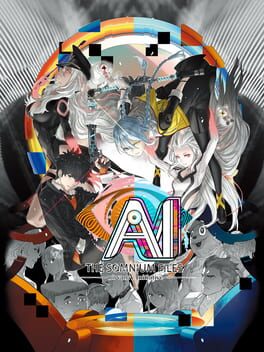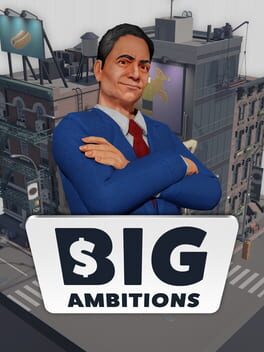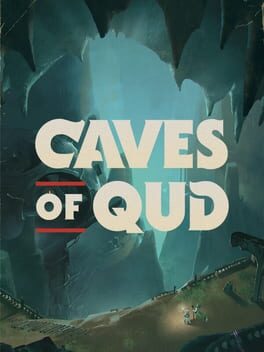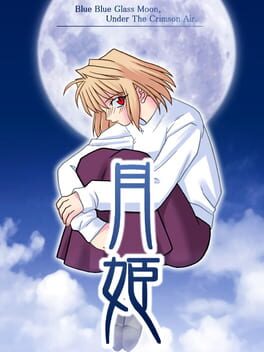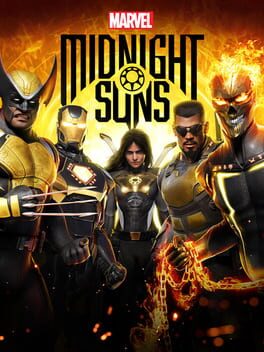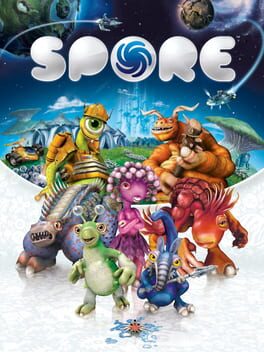dryocampa
a really perfect execution of the investigation game as a genre. complex multifaceted crimes with zero procedural fluff to get in the way of Tactical Investigation Action.
A common problem with other mystery games is the linear narrative structure, where your protagonist needs to work through every clue in the precise order determined by the writers, regardless of how far ahead the actual player has been able to reason. It's a convention borrowed from how these stories are told in other genres, but I've never seen a mystery game take advantage of its medium as well as this one does. it's impossible to get ahead of the story here, because the format ensures that you're able to take advantage of every realization in real time.
i'd play a hundred more games in the same/similar format. really special game.
A common problem with other mystery games is the linear narrative structure, where your protagonist needs to work through every clue in the precise order determined by the writers, regardless of how far ahead the actual player has been able to reason. It's a convention borrowed from how these stories are told in other genres, but I've never seen a mystery game take advantage of its medium as well as this one does. it's impossible to get ahead of the story here, because the format ensures that you're able to take advantage of every realization in real time.
i'd play a hundred more games in the same/similar format. really special game.
2024
EDIT: leaving my original review below because i think some of the perspective and analysis still stands, but after at least 50 hours i've landed firmly in the pro-balatro camp for a number of reasons.
i was initially dismissive of the game due to what i still perceive as a fairly low skill ceiling to "winning" a run. that's still sort of true, insofar as finding a combination of jokers that'll let you make 100,000 chips on white stake is not a difficult job. once you move beyond that, to hunting higher stakes, antes, or challenge runs, balatro begins to shine impeccably. this game is so finely tuned, back to front, in terms of letting the player make interesting, intelligent choices. every action, even those as simple as a discard, comes with a cost-benefit analysis. every additional hand played means losing a dollar, every dollar spent means losing out on potential interest. every joker used for a supplementary benefit takes up a valuable spot that could strengthen every hand, and every joker needs to be considered not solely on it's own merits, but how it fits into a wider strategy. a friend asks me for advice, which jokers or tarot cards are best, and I find it difficult to give a real answer, because everything is so contextually dependent, everything needs to be learned by doing, all while having each individual card and action be completely intuitive. it's accessible, with a low skill floor and a high skill ceiling, and an extremely reasonable learning curve.
there will be a lot of balatro-likes in the next few years, i've already seen one or two pop up in early access, once for roguelike mahjong, one for roguelike roulette, but many of these games will struggle in hitting the near-perfect balance of elements that this game achieves.
original review:
still actively playing this one but i'm a little hot and cold on it despite the hype.
for a card game, the actual playing of card can matter very little compared to cash and joker management, which inevitably become the core of the run every time. most of the runs i've won, i've won by finding the right three or four jokers that blast my multiplier into the stratosphere. i won my last run playing a pair of twos that could've nearly beat the final boss blind by themselves, and not because of any particularly involved decisions beyond identifying some good joker synergies half a run ago.
ironically, my most fun run yet was one that i lost, cheesing myself into like a hundred tarot cards and having half my deck made of enhanced cards, which was cool, but couldn't overcome the lack of a sufficiently broken joker to boost up my mult. lot's of decision making, timing, involved card/hand selections, and the impact was minimal compared to getting a big big multiplier every hand like in my other runs.
it's fun, for sure. cards and mechanics click together clearly and comprehensibly, there's a lot of well-made content and variety, but it feels like the skill ceiling is pretty drastically low, once you've identified how to make the number big. it almost has more resemblance to an idle game than any other card game i've played, which doesn't necessarily make it a bad game, but might not make for a great card game.
i was initially dismissive of the game due to what i still perceive as a fairly low skill ceiling to "winning" a run. that's still sort of true, insofar as finding a combination of jokers that'll let you make 100,000 chips on white stake is not a difficult job. once you move beyond that, to hunting higher stakes, antes, or challenge runs, balatro begins to shine impeccably. this game is so finely tuned, back to front, in terms of letting the player make interesting, intelligent choices. every action, even those as simple as a discard, comes with a cost-benefit analysis. every additional hand played means losing a dollar, every dollar spent means losing out on potential interest. every joker used for a supplementary benefit takes up a valuable spot that could strengthen every hand, and every joker needs to be considered not solely on it's own merits, but how it fits into a wider strategy. a friend asks me for advice, which jokers or tarot cards are best, and I find it difficult to give a real answer, because everything is so contextually dependent, everything needs to be learned by doing, all while having each individual card and action be completely intuitive. it's accessible, with a low skill floor and a high skill ceiling, and an extremely reasonable learning curve.
there will be a lot of balatro-likes in the next few years, i've already seen one or two pop up in early access, once for roguelike mahjong, one for roguelike roulette, but many of these games will struggle in hitting the near-perfect balance of elements that this game achieves.
original review:
still actively playing this one but i'm a little hot and cold on it despite the hype.
for a card game, the actual playing of card can matter very little compared to cash and joker management, which inevitably become the core of the run every time. most of the runs i've won, i've won by finding the right three or four jokers that blast my multiplier into the stratosphere. i won my last run playing a pair of twos that could've nearly beat the final boss blind by themselves, and not because of any particularly involved decisions beyond identifying some good joker synergies half a run ago.
ironically, my most fun run yet was one that i lost, cheesing myself into like a hundred tarot cards and having half my deck made of enhanced cards, which was cool, but couldn't overcome the lack of a sufficiently broken joker to boost up my mult. lot's of decision making, timing, involved card/hand selections, and the impact was minimal compared to getting a big big multiplier every hand like in my other runs.
it's fun, for sure. cards and mechanics click together clearly and comprehensibly, there's a lot of well-made content and variety, but it feels like the skill ceiling is pretty drastically low, once you've identified how to make the number big. it almost has more resemblance to an idle game than any other card game i've played, which doesn't necessarily make it a bad game, but might not make for a great card game.
2023
i'm not a person that'll instinctually rip on something like this because of the concept alone (i love narrative-focused games and i'm a biiiig sucker for the overly sentimental), and i was actually kind of excited to be a contrarian about this one, in order to become more annoying to friends and loved ones. that being said, i think there's some overwhelming tonal and structural issues here that make the overall experience one that i wouldn't recommend.
the characters, relationships, and dialogue are mostly fine, they stay well out of cringe territory for most of the game. but the stakes of the plot are a little mismatched to the character drama. the main thread of the whole game is the impending breakup of the main character's band as the other members grow up and move on to their adult life, but that's a really difficult thing to reconcile with impending unavoidable death for all the characters involved, and the game doesn't really try to cross or balance the two.
the game had a well documented narrative reboot right at the start of the pandemic, with an entirely new writing team brought in. interviews related to this talk about how the pandemic itself had a big influence on the new direction they took, but nothing about the final story here feels like it's echoing that emotionally. my theory is that it's actually the opposite, that a lot of the most grim elements were severely toned down or cut to avoid appearing insensitive given the doom and gloom climate of the early lockdowns, which leaves it feeling a bit disjointed now.
beyond that, the game is very linear with no real impact from the player's choices or actions. that's probably the cost of doing business with fully voiced dialogue and animated cutscenes for almost everything (except for the D&D sequences, which are suspiciously missing almost the entire voice cast despite nearly every character being present) but you feel it for sure, despite the game constantly giving you an interface icon implying that your choices do matter.
i wouldn't call it bad by any means, but i think it misses the mark on the emotional stakes and feels a little lost by the ending.
in conclusion: i don't know why the school is called volcano high, because the big disaster is an asteroid and volcanos are never mentioned in the game.
the characters, relationships, and dialogue are mostly fine, they stay well out of cringe territory for most of the game. but the stakes of the plot are a little mismatched to the character drama. the main thread of the whole game is the impending breakup of the main character's band as the other members grow up and move on to their adult life, but that's a really difficult thing to reconcile with impending unavoidable death for all the characters involved, and the game doesn't really try to cross or balance the two.
the game had a well documented narrative reboot right at the start of the pandemic, with an entirely new writing team brought in. interviews related to this talk about how the pandemic itself had a big influence on the new direction they took, but nothing about the final story here feels like it's echoing that emotionally. my theory is that it's actually the opposite, that a lot of the most grim elements were severely toned down or cut to avoid appearing insensitive given the doom and gloom climate of the early lockdowns, which leaves it feeling a bit disjointed now.
beyond that, the game is very linear with no real impact from the player's choices or actions. that's probably the cost of doing business with fully voiced dialogue and animated cutscenes for almost everything (except for the D&D sequences, which are suspiciously missing almost the entire voice cast despite nearly every character being present) but you feel it for sure, despite the game constantly giving you an interface icon implying that your choices do matter.
i wouldn't call it bad by any means, but i think it misses the mark on the emotional stakes and feels a little lost by the ending.
in conclusion: i don't know why the school is called volcano high, because the big disaster is an asteroid and volcanos are never mentioned in the game.
2020
oof. i might be missing something here but this did not grab me at alllll as a horror manga fan/occasional roguelike enjoyer. while this does a fair job of emulating the surface level aesthetics of - and this may surprise you - junji ito, it lacks a lot of the character depth and involvement that make his stories so engaging, by putting all the scaries through the filter of a silent stoic protagonist with no concrete place or involvement in the world of the story. sure, ito writes a lot of scared teenagers going through fucked up situations, but nothing in my first hour or two left me feeling like my teenager was getting particularly fucked up by these events.
the roguelike random-event based structure means that even while trying to solve a specific mystery, you'll just have random seemingly-unrelated baddies popping up around every corner. if your inspiration is largely focused around unstoppable horror monsters and you morph them into generic jrpg mobs, it really really neuters the impact.
beyond that, runs feel heavily heavily rng dependent with very little involvement in the story or variability in the combat. a lot of people dispute calling this a roguelike, but i have no idea what else you'd call it, and as an example of that genre, it feels very thin.
i might give it another shot or two but i was legitimately bummed that this game boils down to that, since it's seemed so aesthetically interesting for years.
the roguelike random-event based structure means that even while trying to solve a specific mystery, you'll just have random seemingly-unrelated baddies popping up around every corner. if your inspiration is largely focused around unstoppable horror monsters and you morph them into generic jrpg mobs, it really really neuters the impact.
beyond that, runs feel heavily heavily rng dependent with very little involvement in the story or variability in the combat. a lot of people dispute calling this a roguelike, but i have no idea what else you'd call it, and as an example of that genre, it feels very thin.
i might give it another shot or two but i was legitimately bummed that this game boils down to that, since it's seemed so aesthetically interesting for years.
2023
i am a die-hard fan of the original F.E.A.R and absolute hater for 2 and 3, so this game was largely made for me to be picky about. that being said: very fun! a little short but plenty of side-content to get you your money's worth.
atmospheric component is fantastic. a good chunk of the game looked exactly like what I'd want a F.E.A.R remaster to look like, like it was literally just Armacham HQ, 2023 version. the story is almost nonexistent here, cool but paper thin, which is fine: F.E.A.R's overarching story is pure action-scifi-horror cheese that really doesn't stand up to scrutiny.
both titles achieve the same core thing that i love: being a fucked-out emotionless supersoldier blasting through hundreds of mercenaries in slow-motion through an assortment of abandoned office complexes and industrial spaces.
atmospheric component is fantastic. a good chunk of the game looked exactly like what I'd want a F.E.A.R remaster to look like, like it was literally just Armacham HQ, 2023 version. the story is almost nonexistent here, cool but paper thin, which is fine: F.E.A.R's overarching story is pure action-scifi-horror cheese that really doesn't stand up to scrutiny.
both titles achieve the same core thing that i love: being a fucked-out emotionless supersoldier blasting through hundreds of mercenaries in slow-motion through an assortment of abandoned office complexes and industrial spaces.
2021
2004
2023
hard to describe what i like about this game. business sim is an established genre but i've never played one that feels so granular and realistic while also being very broad-strokes. there's something about desperately stuffing your shitty used car with frozen burgers so you can personally haul them across town to keep your small business open for the night shift, and you've got eight other things you should be doing instead of that, and you take a left turn too fast and go flying into a telephone pole, and now you need to go into even more debt to fix your car, which you've been sleeping in for two weeks. it is in very early access right now and controls in particular are very bad, but once this adds more depth/complexity and creeps closer to a full release, it'll be insanely good.
2015
2000
some real good stuff here. production-wise, you can see a lot of the structural quirks in the approach that were smoothed out and refined for fate stay night. overall it's a little thinner than the successor, both in the depth of the characters and the relationships that it wants to explore. the biggest failure when comparing the two directly is the protagonist. shiki, imo barely gets a chance to elevate beyond a boilerplate player stand-in, never getting the depth of character exploration that you get from shirou. there's some reasons for that in the text, but it thins the narrative impact of everything that happens to him.
i was gonna try to grit my teeth through the sex scenes but the first few made me legitimately want to hurl and i had to find a version of the game where they just cut to black and skip. as bad as they are in the OG fate before they were mercifully removed from the currently available version, these are immediately far worse, both narratively and content-wise.
very excited that the remake seems to want to go way further in-depth on each route, alongside an official localization.
i was gonna try to grit my teeth through the sex scenes but the first few made me legitimately want to hurl and i had to find a version of the game where they just cut to black and skip. as bad as they are in the OG fate before they were mercifully removed from the currently available version, these are immediately far worse, both narratively and content-wise.
very excited that the remake seems to want to go way further in-depth on each route, alongside an official localization.
so far the gameplay itself is fine but this thing is loaded to the brim with slow, generic filler. for every twenty minutes of gameplay i've had another forty of a bad MCU BioWare game. five hours in and I can count the number of combat encounters on one hand. it's a story heavy game with a very weak story, much more generic Avengers-ish fare than the branding would suggest. not sure if it's worth the effort to break through to where I'm not being handheld with tutorials about how to become friends with iron man
update: i got through to the point where i felt like i was having genuine fun with the combat systems as-intended, but i'm putting it back on the shelf. the game is drowning in fully animated and voiced cutscenes that, even once they improve in quality/decrease in cringe, still feel like too much of a timesink. i like it but i don't think i like it enough to play it for 60-80 hours
update: i got through to the point where i felt like i was having genuine fun with the combat systems as-intended, but i'm putting it back on the shelf. the game is drowning in fully animated and voiced cutscenes that, even once they improve in quality/decrease in cringe, still feel like too much of a timesink. i like it but i don't think i like it enough to play it for 60-80 hours
2023
i think i've outgrown these games. wanted to give it an honest shot but the first few hours didn't do much to compel me. the o2 meter and carry weight got brutally annoying real fast and there's nothing about this world that i find compelling enough to sink in extra hours. i might've tried to mod these out but i guess game pass doesn't like modding the output of the most mod-vital developer of all time.
2008
i probably played this game for close to 500 hours when i was ~11 years old. probably my first singular obsession as a game. this was, for me, what minecraft would be for the next generation.
it's pretty bad.
i don't know that there's another game that shot for the same level of ambition as this, trying to do a simulation of a species starting at cellular life and going up through star trek times. the way they achieved that lofty goal was by basically not having it be a simulation whatsoever. spore is six glorified minigames loosely stitched together with almost no connective tissue between them.
the hook, for both the devs and the player base i imagine, was the Creature Creator, which lets you mold automata from flesh and bone. As a standalone tool, it's the best part of the game, with really rigorous rigging and animation tech to keep things feeling dynamic and responsive to your designs.
unfortunately, this creator is only ever relevant to the creature stage, where creature parts must be individually unlock at complete random on every individual playthrough. While the standalone creator allows for a variety of designs, the actual core gameplay experience demands building a strange lumpy beast composed of optimized parts with no aesthetic.
after the creature stage, the creator downgrades from being "partially relevant" to "completely irrelevant", as every other part of the game will play entirely identically regardless of your creature's physiology. the remainder of spore is a paper-thin tribe-based rts, a paper-thin city-based rts, culminating in a glacially paced space exploration game that locks technology upgrades behind an achievement system that demands an insane amount of repetitive busywork to unlock anything, all in service of cruising around the stars meeting visually-different functionally-identical spacefaring empires, only differing in flavor text and opinion bonuses.
it fails entirely in functioning as a cohesive game, but unfortunately it's infected my childhood brain so thoroughly that deep down, i'm still waiting for someone to take a fresh shot at the same concept. there's individual games that scratch the itch of every individual stage, but nothing else that tries to rope them all together into the same kind of cohesive mega-game, but one where all the moving parts actually meaningfully connect and affect each other.
it's pretty bad.
i don't know that there's another game that shot for the same level of ambition as this, trying to do a simulation of a species starting at cellular life and going up through star trek times. the way they achieved that lofty goal was by basically not having it be a simulation whatsoever. spore is six glorified minigames loosely stitched together with almost no connective tissue between them.
the hook, for both the devs and the player base i imagine, was the Creature Creator, which lets you mold automata from flesh and bone. As a standalone tool, it's the best part of the game, with really rigorous rigging and animation tech to keep things feeling dynamic and responsive to your designs.
unfortunately, this creator is only ever relevant to the creature stage, where creature parts must be individually unlock at complete random on every individual playthrough. While the standalone creator allows for a variety of designs, the actual core gameplay experience demands building a strange lumpy beast composed of optimized parts with no aesthetic.
after the creature stage, the creator downgrades from being "partially relevant" to "completely irrelevant", as every other part of the game will play entirely identically regardless of your creature's physiology. the remainder of spore is a paper-thin tribe-based rts, a paper-thin city-based rts, culminating in a glacially paced space exploration game that locks technology upgrades behind an achievement system that demands an insane amount of repetitive busywork to unlock anything, all in service of cruising around the stars meeting visually-different functionally-identical spacefaring empires, only differing in flavor text and opinion bonuses.
it fails entirely in functioning as a cohesive game, but unfortunately it's infected my childhood brain so thoroughly that deep down, i'm still waiting for someone to take a fresh shot at the same concept. there's individual games that scratch the itch of every individual stage, but nothing else that tries to rope them all together into the same kind of cohesive mega-game, but one where all the moving parts actually meaningfully connect and affect each other.
